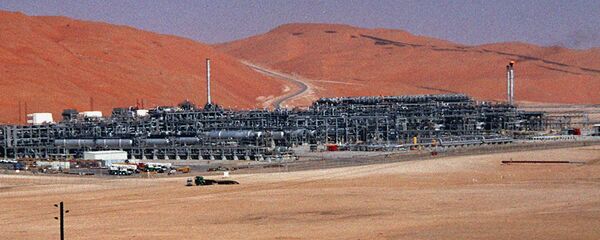Earlier, oil prices rebounded after falling to their lowest since August on reports that Russia and Saudi Arabia are discussing oil output cuts in 2019.
Sputnik discussed this with Oliver Klaus, Dubai bureau chief at Energy Intelligence, Powerful Thinking for the Global Energy Industry.
Sputnik: What reaction can we expect from OPEC members and allies following these reports from America?
Oliver Klaus: It really seems that very impressive numbers are coming out of the US; obviously, pumping at 11.6 million barrels per day last week that is ahead of Russia and Saudi Arabia that were pumping at 11.3 and 10.7 respectively. Of course, OPEC is watching this very closely; it has already signaled that it might have to take action. OPEC and non-OPEC partners are already discussing the possibility of cutting an output next year. There's, obviously, a lot of oil on the market right now and there is a lot of concern that stocks will move out of balance again, after all the efforts that the producers have put in.
READ MORE: Iranian Oil Waivers Signal US Losing Int'l Authority — Professor
On top of it, we have the demand outlook [which looks] pretty poorly because of economic concerns, sparsely because of the trade war between the US and China. So, oil prices have come down quite a lot; Brent is down from 85 to about 72. OPEC and Russia have been pumping a lot, the US has ramped up, Iran's exports aren't going to zero in the immediate future as it seems; Libya is stable and Nigeria has been quiet; so, the market has been relatively negative on supplies going forward and that hasn't happened. So, now we are in a situation where OPEC is in a position to review where they stand, they have pumped all these extra barrels; and what we expect to see is this being the main discussion in Abu Dhabi over the weekend.
Sputnik: What are your thoughts regarding the oil boom in the US? How long can this actually last where the US is producing at such high levels?
What we will see is most likely growth rates come down because the shale producers particularly require more capital to maintain let alone raise output. There are questions whether they can maintain productivity level; there is still infrastructure bottlenecks in the US both for oil and gas, and that's closely interlinked; so, this could slow growth. So what we are looking at post-2020 is, probably, additions per year of 400 to 600 thousand barrels per day, but not one plus million that we are expecting this year next.
Sputnik: Is it likely that the US can replace Iran's market share on the oil market? Certainly, it looks as though they're trying to do that, doesn't it?
Oliver Klaus: It's true. We've seen the Chinese a couple of weeks ago picking up more Iranian crude, but it's not that simple in terms of "let's replace Iranian oil with US oil for a lot of refiners in Asia." That's partly because it's not possible for some of the Asian refiners to process a lot of the export crude coming out of the US, which is a lot lighter and sweeter than a lot of the Iranian oil that is going to Asia. You can't just replace barrel for barrel; and what it means is that Asian refiners, in particular, will have to look for alternative oil and alternative grades, similar to the Iranian one.
READ MORE: Iran's Oil Minister Urges OPEC to Halt Work of Oil Cuts Monitoring Committee
Sputnik: President Trump has been calling on Saudi Arabia to use its surplus capacity to add oil to the market to avoid higher oil prices; is that going to be possible from a Saudi Arabian point of view? What's your take on that?
Sputnik: The US sanctions on Iran have seen countries like France stepping up and protecting Iran oil trade from the measures; what impact can this have on Washington's relations with Paris?
Oliver Klaus: President Macron has made pretty strong statements over the last couple of days; France has sort of been quite vocal about maintaining trade with Iran within the context of the EU, of course. The EU has come up with a couple of initiatives that are aimed at helping European companies trade with Iran. This includes, for example, a special purpose vehicle that's supposed to facilitate transactions, including for oil purchases. The big question is really whether they can deliver anything tangible because they have been talking about this for quite a long time and nothing has happened.





